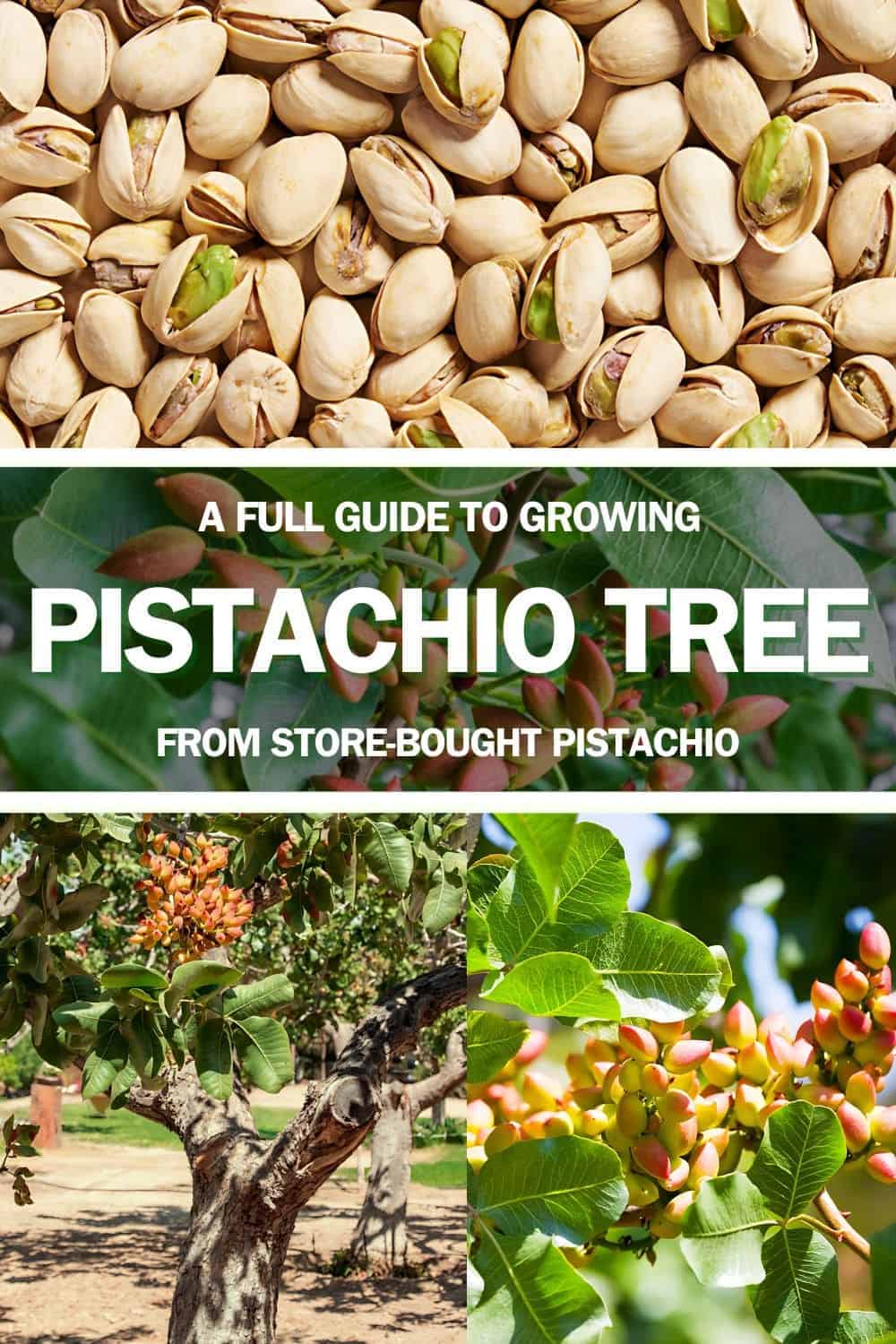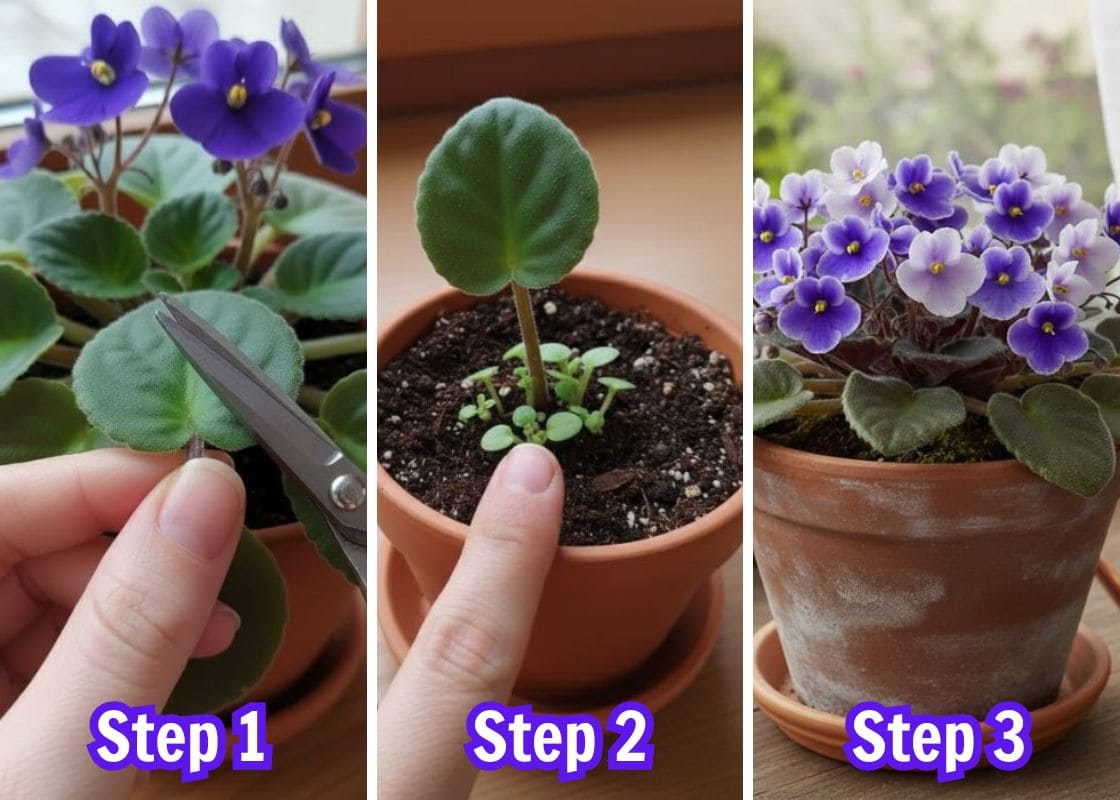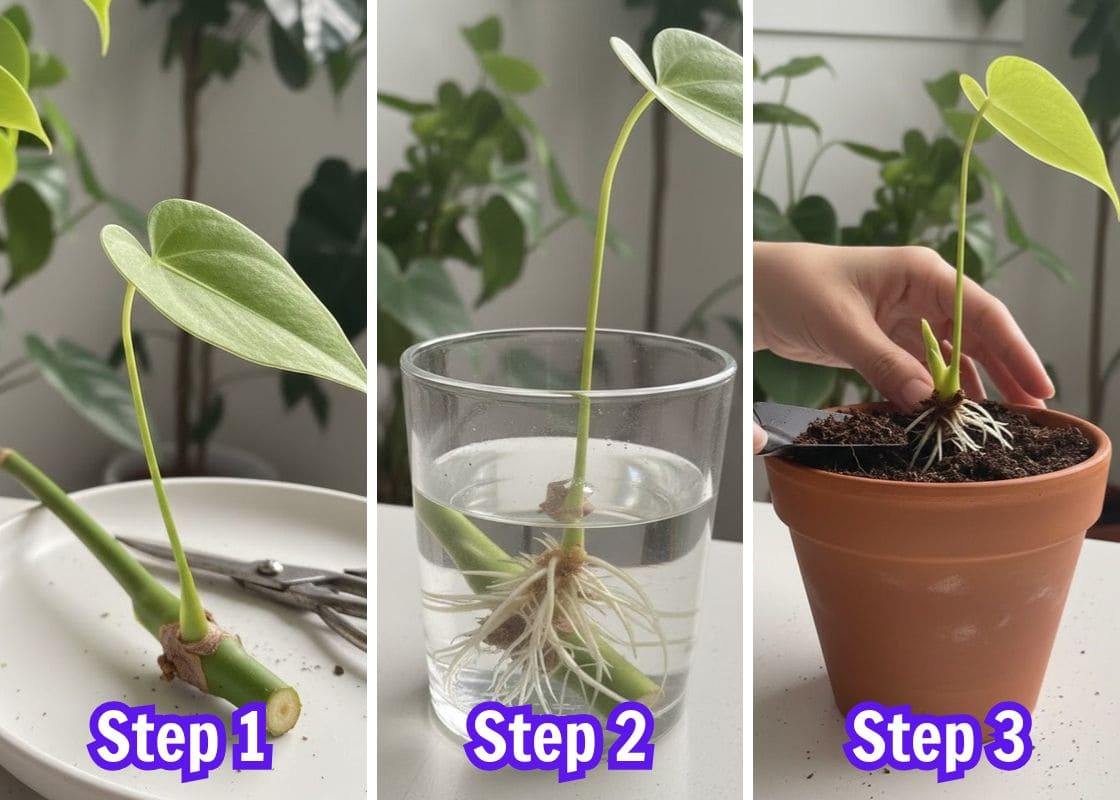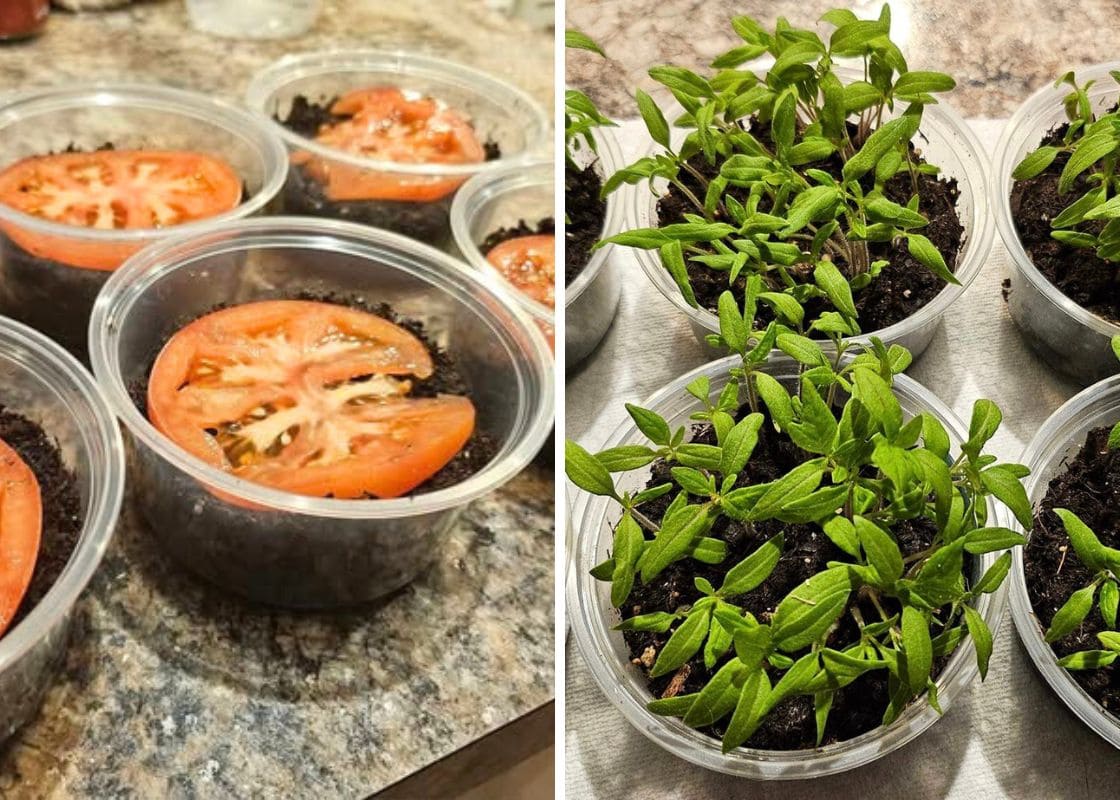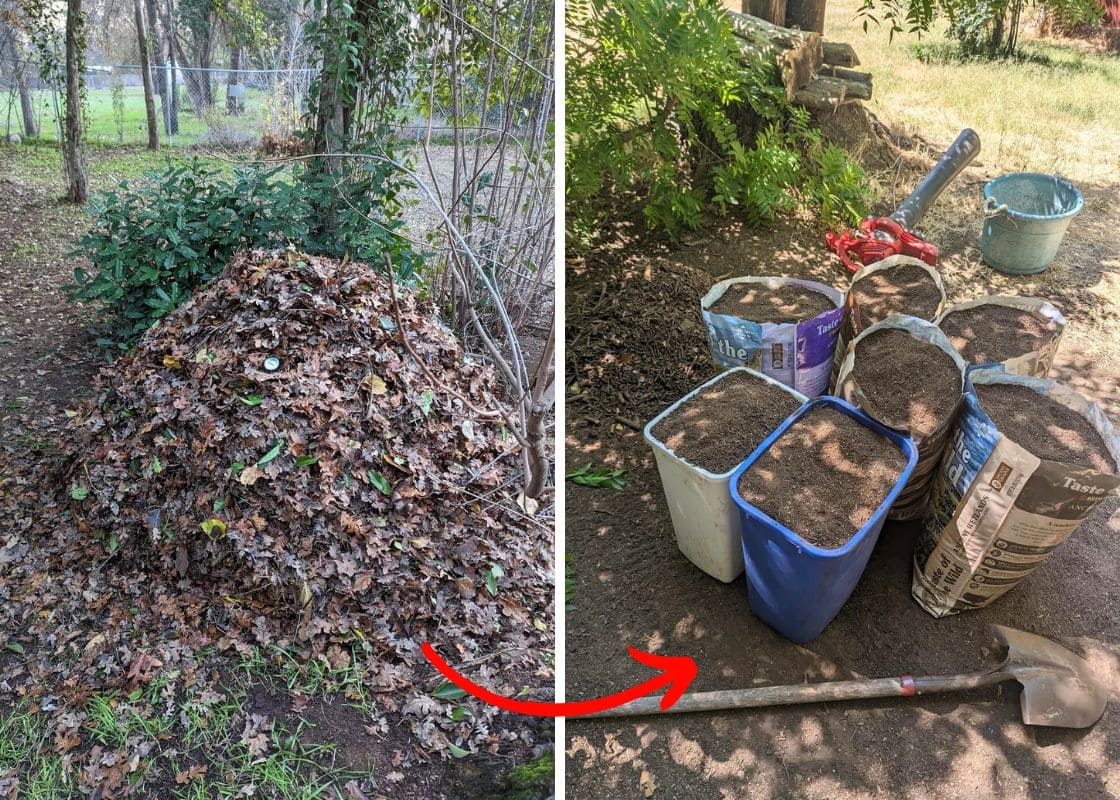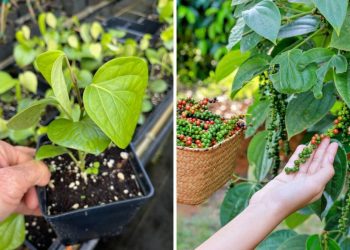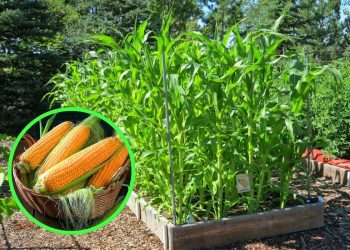Growing a pistachio tree from store-bought pistachios is an exciting yet challenging endeavor.
Known for their unique taste and health benefits, pistachios have an intriguing growth journey that makes home cultivation rewarding.
This guide will take you through each step to grow your own pistachio tree, from selecting the right seeds to harvesting your first batch of these delightful nuts.
Step 1: Choose the Right Pistachio Seeds
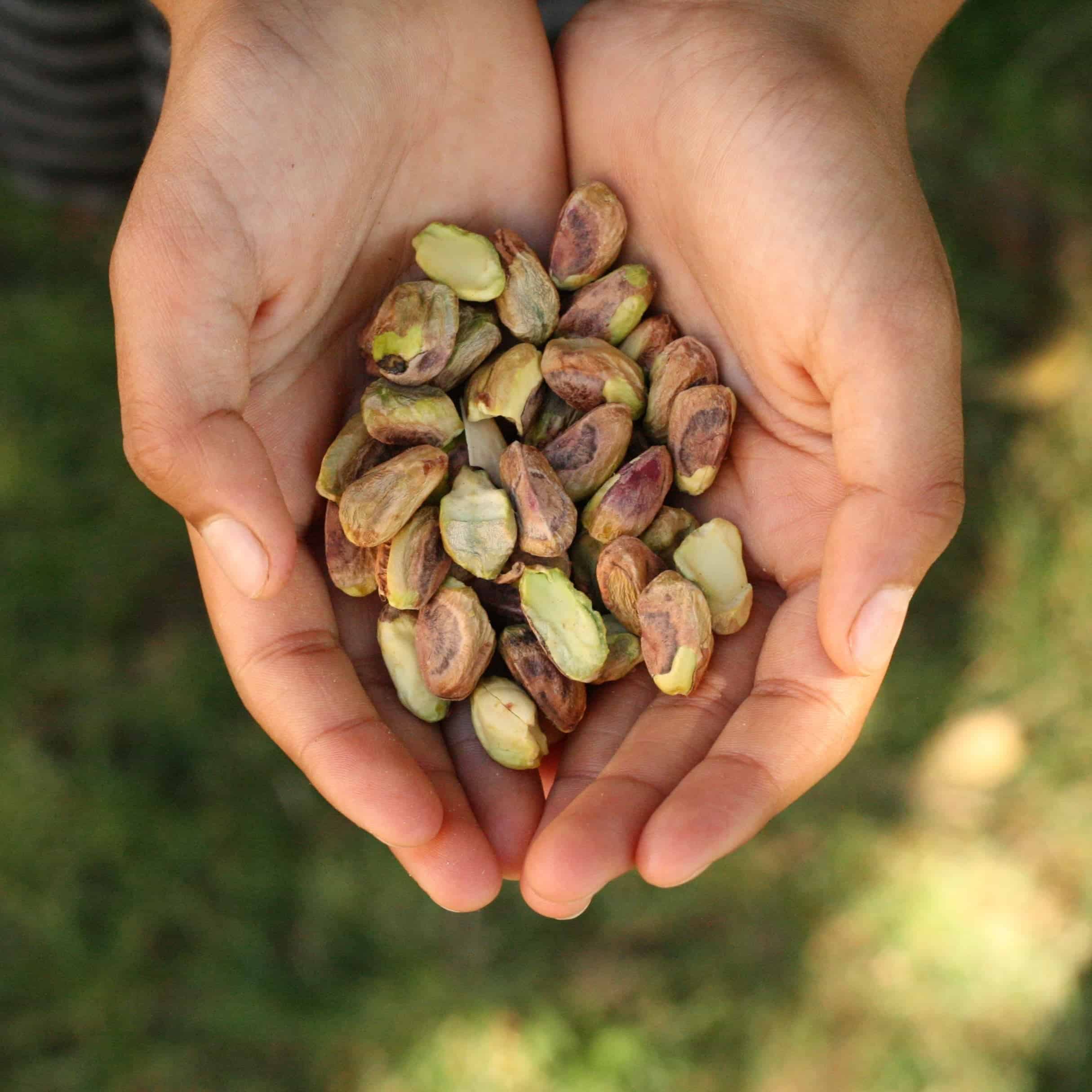
To begin, ensure you select raw, unsalted pistachios, as roasted or salted ones won’t germinate.
Ideally, look for fresh, high-quality pistachios with intact shells – plump seeds are more likely to be viable.
Step 2: Place a Damp Paper Towel in A Plastic Baggie
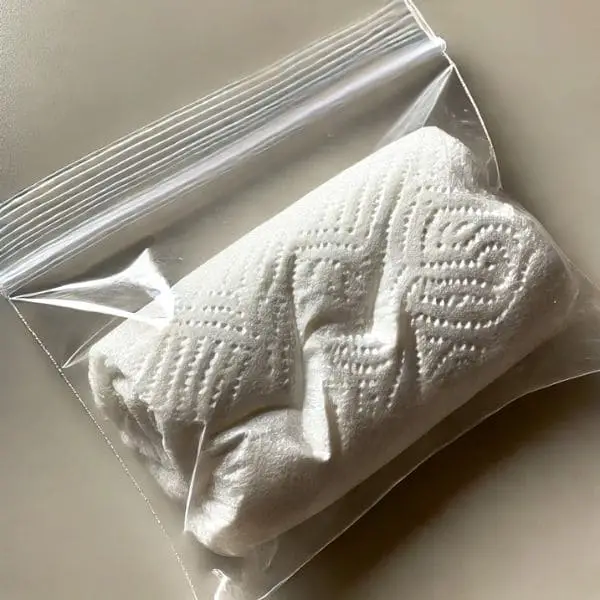
Now, you take a damp paper towel and placing it inside a small plastic baggie to maintain the ideal level of humidity needed for germination.
After placing the damp towel in the baggie, put the bag in a warm area of your home. Ideal temperatures for germination fall between 70°F to 80°F.
Step 3: Add the Pistachio Seeds to the Plastic Baggie
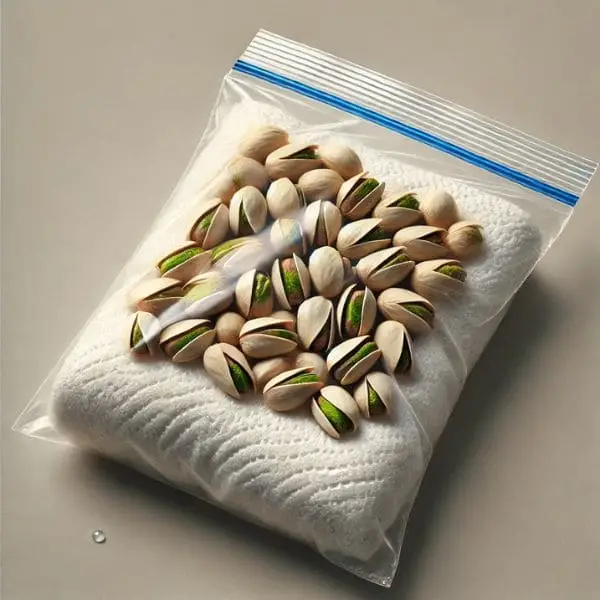
Next, you only need to add the pistachio seeds into the damp paper towel within the baggie.
You can also space them out to allow for airflow and prevent any potential rot from occurring due to overcrowding.
Step 4: Transplant the Pistachio Seedlings
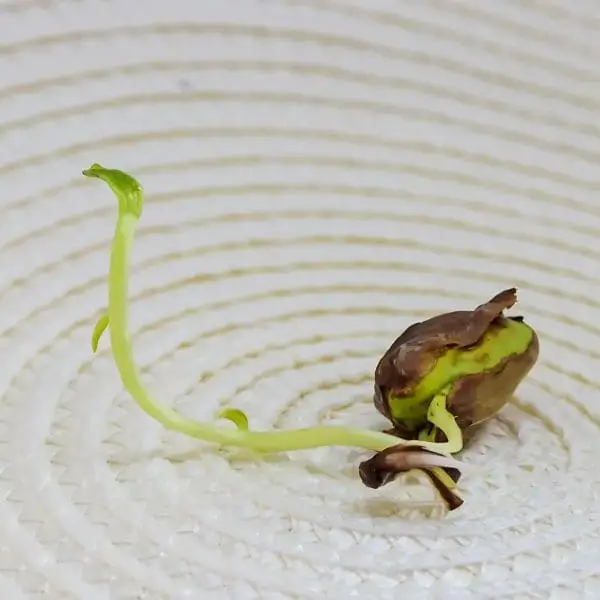
After weeks of careful nurturing, choose containers that provide ample drainage and the size of the pot is ideally around 5 gallons.
Now you should fill loam and compost to mimick the natural conditions in which pistachio trees thrive.
Then, carefully remove the seedlings from the baggie, gently cover the roots and water thoroughly to help settle the soil around the roots.
Step 5: Care for Your Pistachio Tree
Water
While they are relatively drought-resistant once established, young seedlings require regular moisture to encourage growth.
Deep watering once a month is generally sufficient. During the hottest months, you may increase frequency slightly, but be cautious not to overwater.
Temperature and Climate
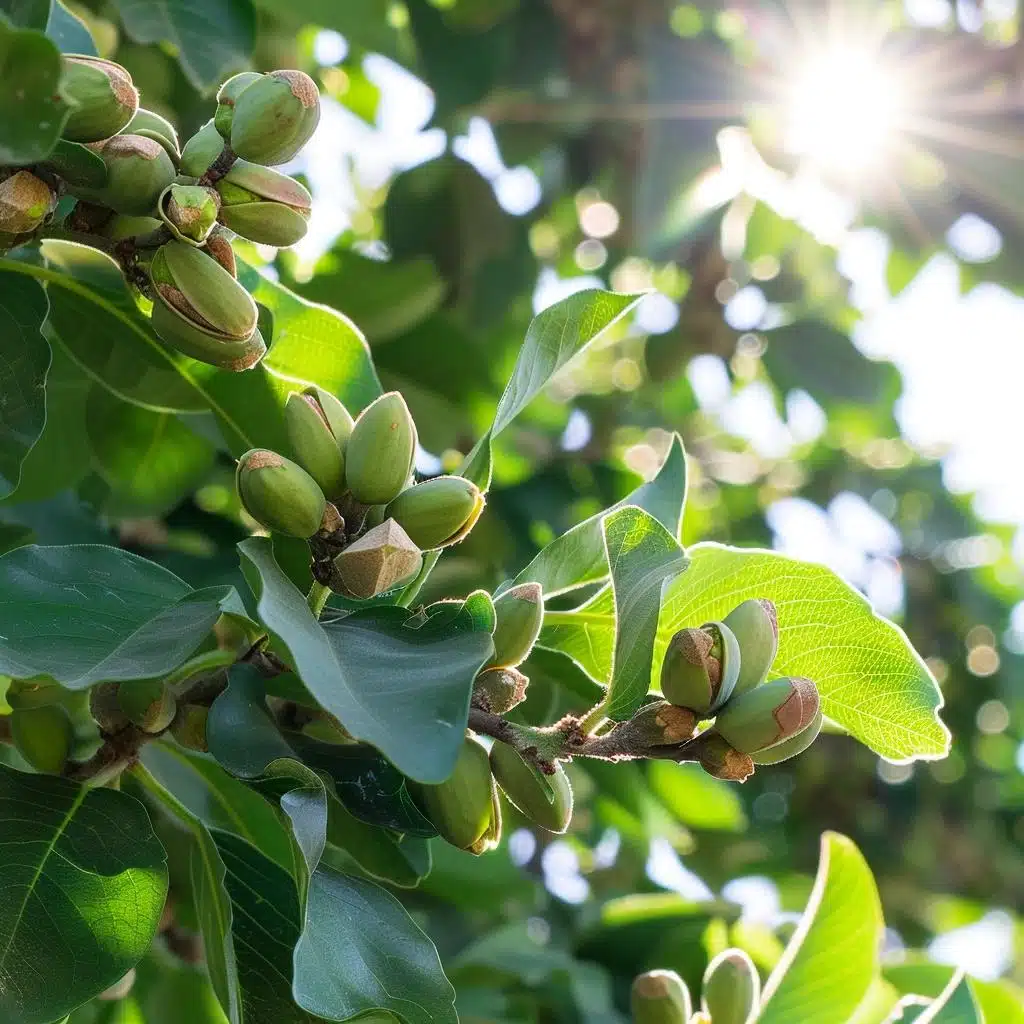
Pistachio trees prefer hot, dry climates with a winter dormancy period.
If you live in a cooler climate, consider growing your seedlings indoors until it’s warm enough outside.
Fertilizer
Pistachio trees typically do not require fertilizer unless the soil has been depleted.
If you feel your trees may benefit from a nutrient boost, use a balanced, water-soluble fertilizer in early spring.
Pruning
Trimming back unwanted branches helps promote better air circulation and increases sunlight exposure.
Besides, you should aim to prune during the dormant season, removing dead or diseased wood to ensure it maintains a sturdy structure.
Pests and Diseases
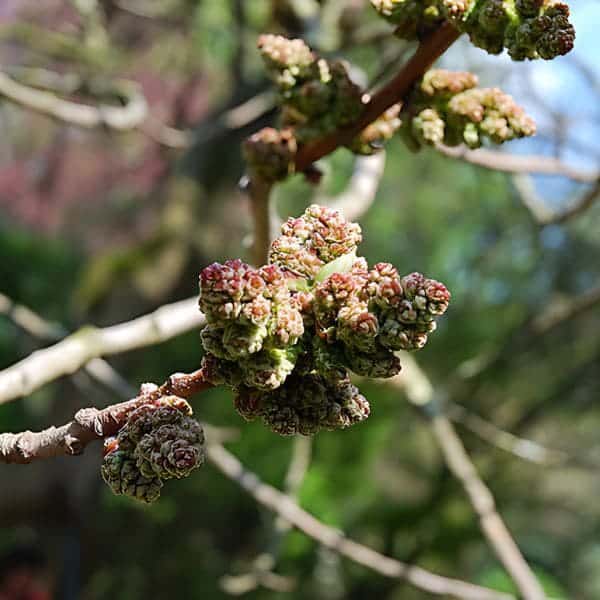
Common threats to pistachio trees include mold, scale insects, and stink bugs.
For mold prevention, focus on proper handling and storage practices, as well as maintaining adequate airflow around your trees.
Should infestations occur, applying insecticidal soap can efficiently treat many of these pests without harming the plant.
Step 6: Harvest Pistachios
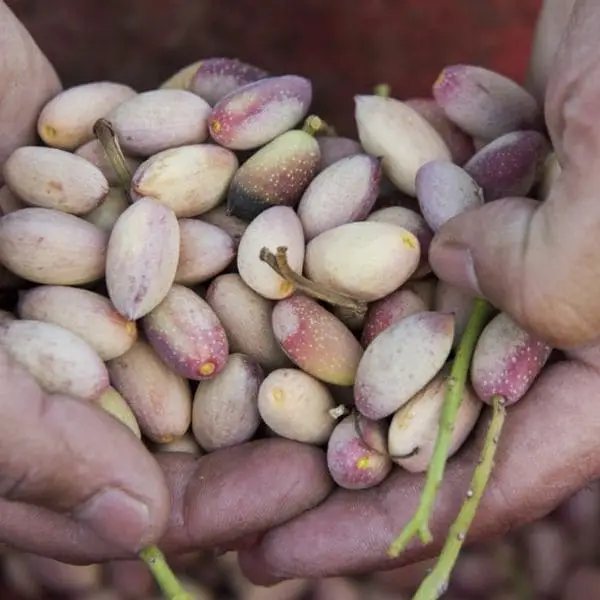
Pistachio trees take 7-10 years to mature and start producing fruit. Ripe pistachios are characterized by their opened shells and reddish meat.
When the time comes, you shake the tree gently to cause the ripe pistachios to fall onto a tarp spread out below.
After gathering, allow the pistachios to dry in a cool, shaded area.
